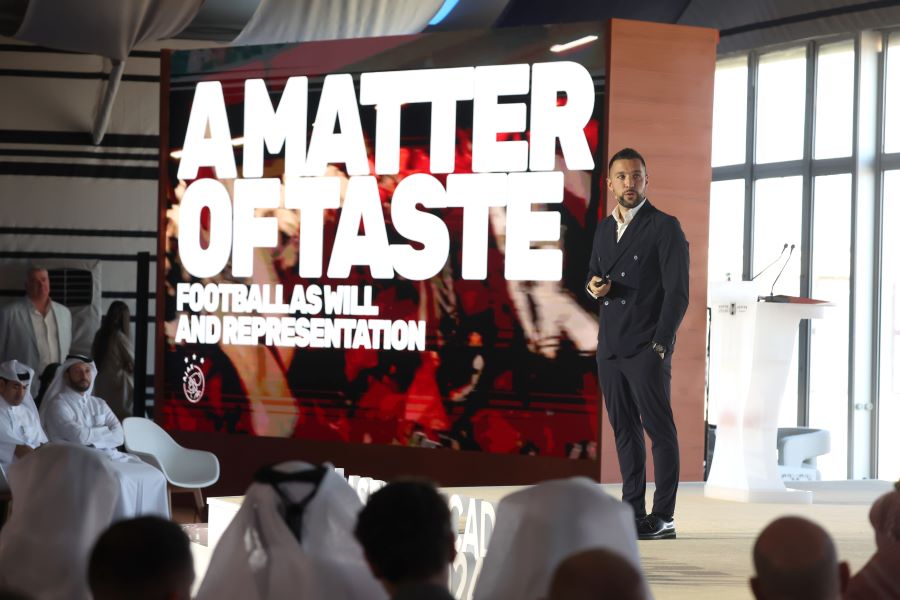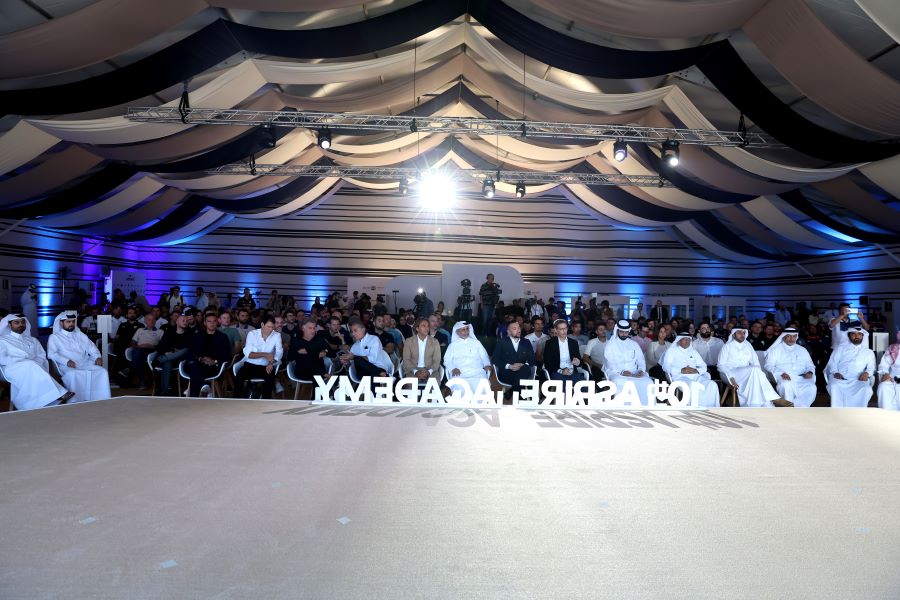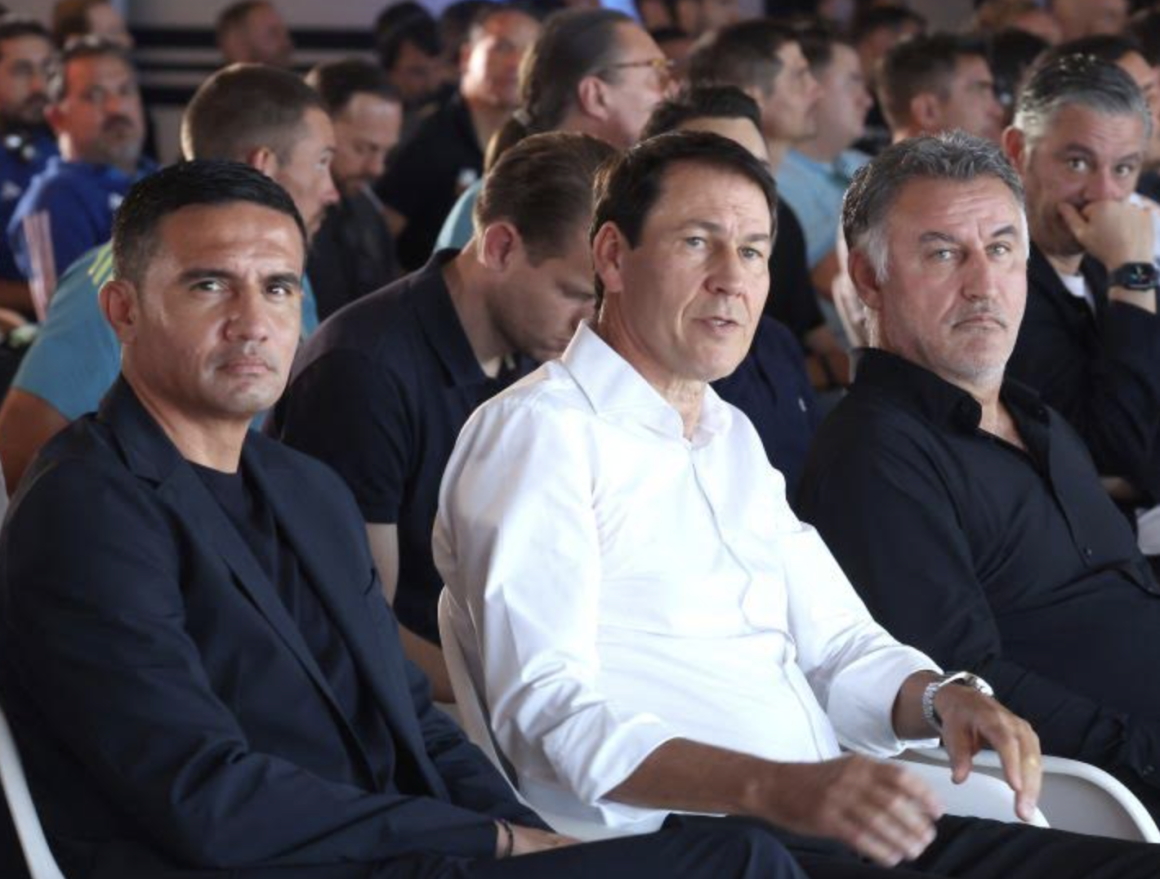The Ajax boss landed in Doha hours after his Ajax side played, to return to the Academy he spent two formative years — this time as a headliner.
It was a full circle moment for both Francesco Farioli and Aspire Academy on Monday, as the current Ajax head coach — who spent his formative years in the Qatar-based academy — kicked off the 10th Global Summit.
Farioli had arrived in 2015 as an aspiring goalkeeping coach, fresh off a spell in Italy’s third division, to take charge of the Qatar U-16 team’s shot-stopping lessons.
At Qatar’s southern desert on Monday, he returned to headline one of the academy’s major events and delivered the Masterclass in front of representatives of more than 50 sporting bodies from around the globe, including clubs, federations, and leagues.
Here was one of Europe’s most impressive young coaches — less than twenty-four hours since his Ajax side played a 2-2 draw against FC Twente — talking about proactive pressing, high defensive lines, and a possession-based approach, all in detail.
“When I arrived, I had a lot of ideas but had no idea how to put them in order,” the 35-year-old said. “That is one of the main things I learnt at Aspire Academy.”
Emphasising on footballing identity that he aims to instill in his sides, Farioli re-created Doha Metro’s map to further his point and give an ode to his former home.

Platform to ‘push boundaries’
Among the front-row guests applauding Farioli’s presentation were Aspire Academy Director General Ivan Bravo and Professor Valter Di Salvo, the summit’s executive director, both of whom had boasted the project’s output.
“[The summit] is built on creativity, as we adapt and find solutions to keep learning […] and to push boundaries and inspire one another,” Di Salvo said while welcoming Farioli on stage.
Bravo, for his part, had summarised and noted the academy’s 20 years of existence and the role it has played in promoting sports, particularly football, in the country.
“Aspire has allowed to foster bonds between the players and the staff that we have here,” Bravo said, noting the 7000-strong limited talent pool of footballers in Qatar. “That understanding leads to success, as we have witnessed with Qatar winning back-to-back AFC Asian Cups.”
Farioli, in his presentation packed with tactical concepts and details of the approach that has made him a young coach with a rapidly growing reputation, mentioned Qatar’s progression to echo both Di Salvo and Bravo.
“Seeing some of those players from my time here now in the national team is rewarding,” the former OGC Nice head coach said. “When we think about vision and putting in effort without knowing what will come of it, it’s incredibly fulfilling to see our kids grow into football players and men who represent the country globally.”

Rudi Garcia laments international football calendar
Another high-profile name, French football manager Rudi Garcia, took to the stage to criticise the international footballing calendar, urging international sports governing bodies to consider players’ well-being.
Garcia, who was most recently with Italy’s Napoli, was one of the opening day’s speakers in Star Chat, alongside fellow countryman Christophe Galtier, who currently manages Qatari side Al Duhail.
“The players are not robots,” Garcia said when asked if the recent amendments to the international calendar are physically taxing for the players.
“We need to understand that there is a human on the back of the jersey. The players today are playing too many games. FIFA and UEFA have to find a solution to this,” he added.
The 60-year-old head coach, who has trained stars like Eden Hazard, Cristiano Ronaldo, and Francesco Totti across various clubs blamed the overwhelming calendar for producing “boring” matches and increasing injuries among players.
“If [a team] is playing against Barcelona in Champions League, they will play at 100 percent. But after that if you are playing a very small team in your league in a long season, it is very hard to keep them focused,” he added.

Current Al Duhail head coach Galtier, on his part, shared the experience of managing the likes of Kylian Mbappe, Lionel Messi, and Neymar Jr. all at once during his time at Paris Saint-Germain, detailing the mentality of world class players.
The summit then dispersed to smaller breakout workshops and roundtable discussions, where themes such as tactical evolution, the future of football, and the intersection of performance and science were discussed.
The event’s second day will include such workshops and sessions, headlined by Star Chats with former Argentinian star forward Gabriel Batistuta and decorated basketball coach Sergio Scariolo.







